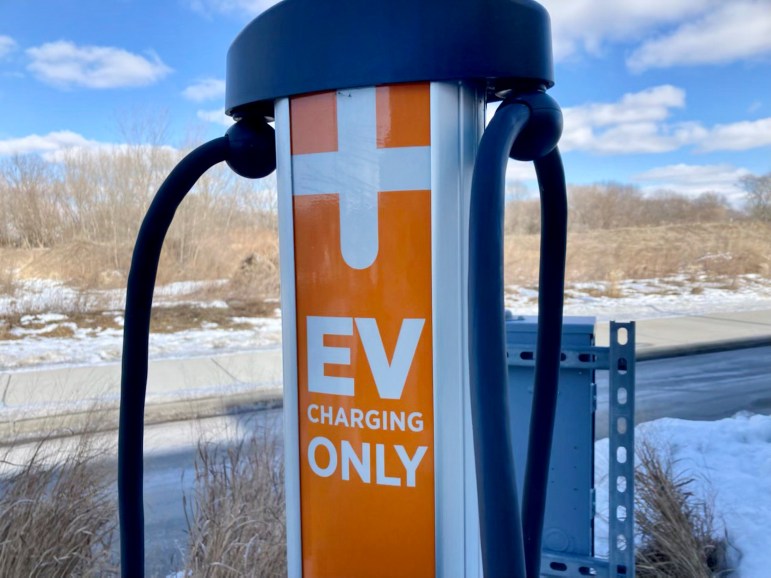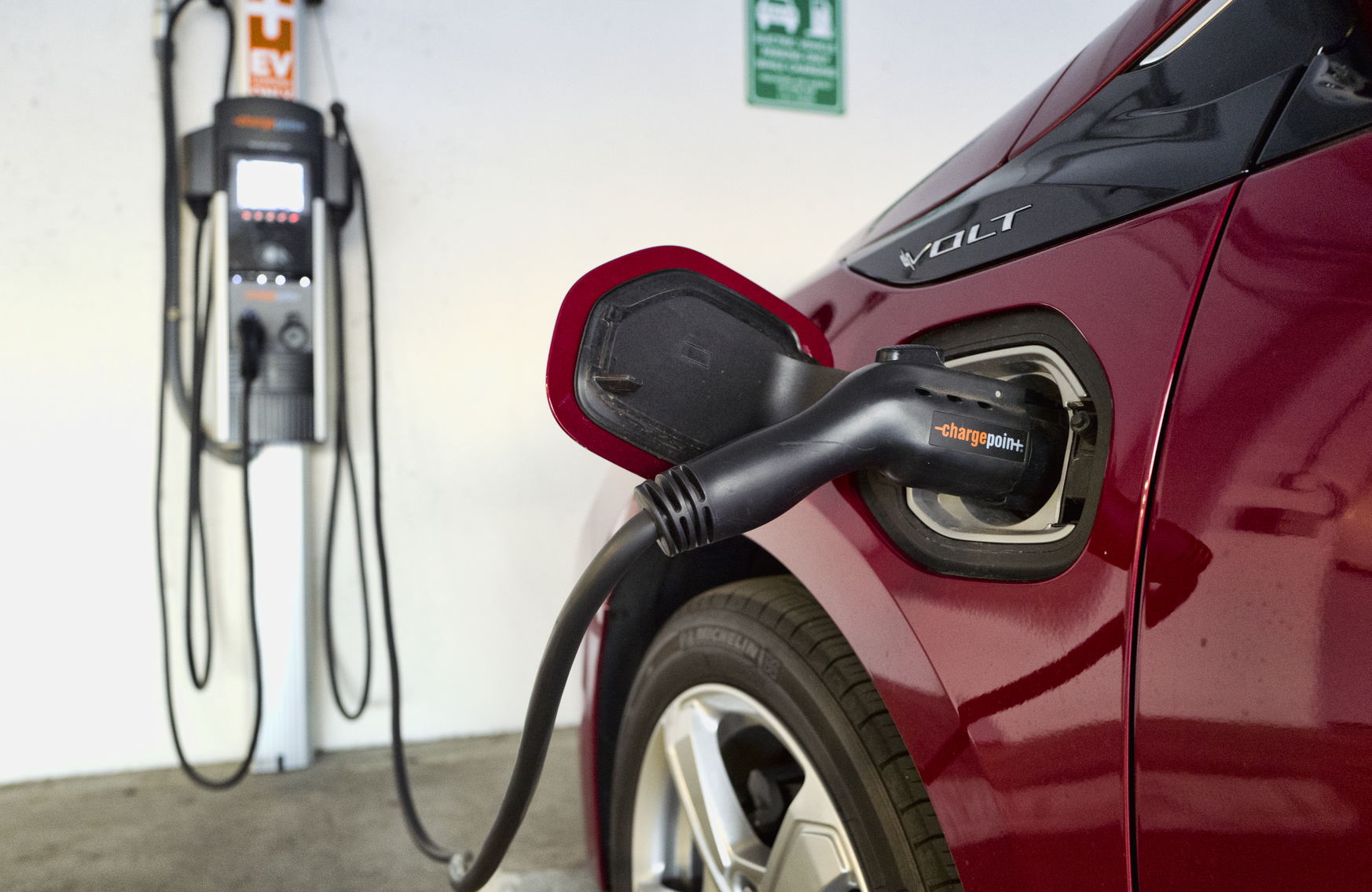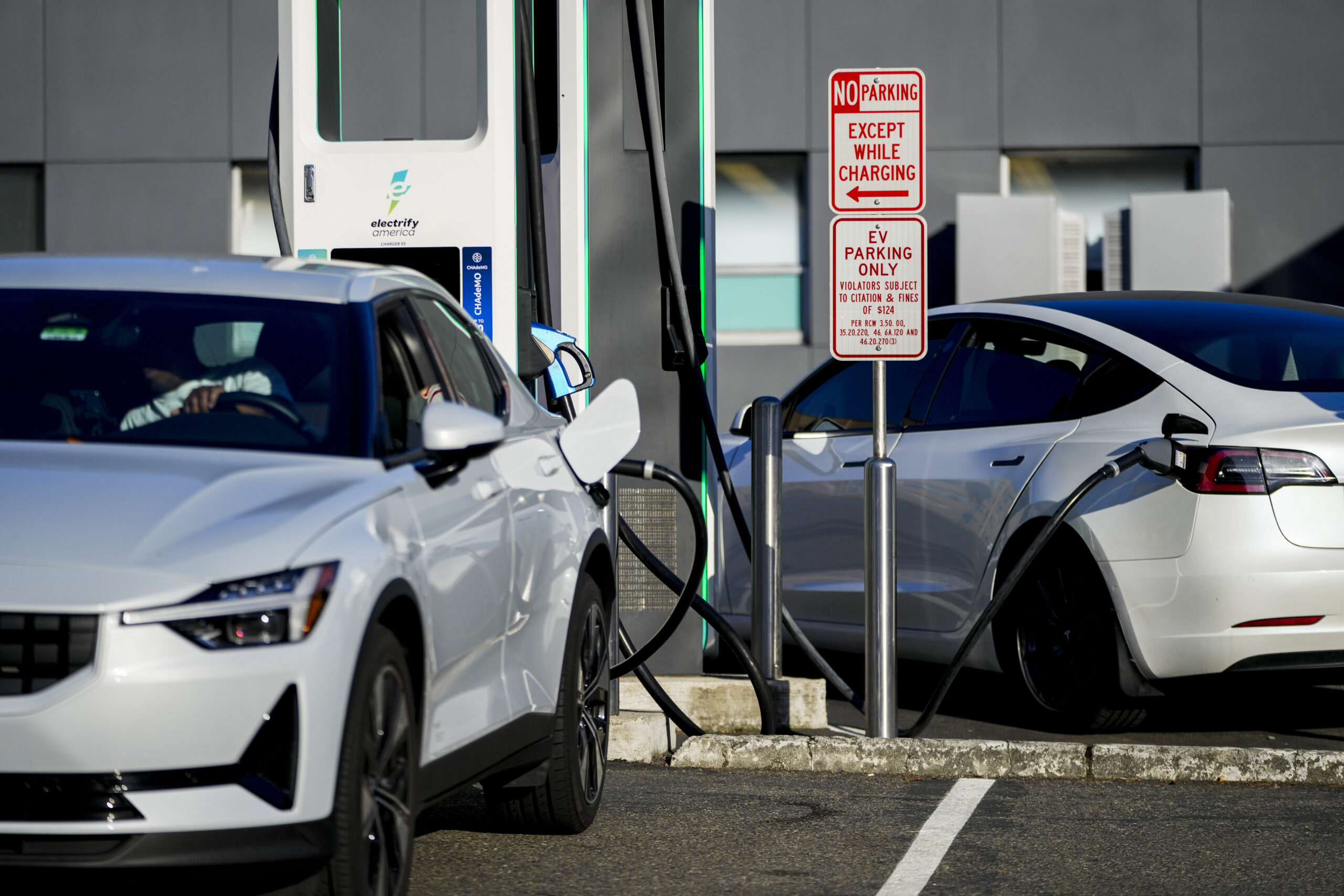A bipartisan effort to unlock federal funding to expand electric vehicle charging stations in Wisconsin is one step closer to becoming a reality.
Last week, the state Assembly passed two bills involving electric vehicles in its hectic final session of the year.
One would exempt electric vehicle charging stations from being regulated as utilities. The other would authorize the Wisconsin Department of Transportation to establish and fund an EV infrastructure program. Both bills passed the Assembly last week on near unanimous votes.
Stay informed on the latest news
Sign up for WPR’s email newsletter.
The funding bill is now on its way to Gov. Tony Evers, while the other heads back to the Senate because of a Republican amendment.
The changes were required to unlock around $78 million in federal funds to build out a state electric vehicle charging network.
Environmental advocates cheered the development.
“We’re really excited about the bill passing the Assembly with such broad bipartisan support. It’s not something that we often see in the Legislature,” said Emma Heins, policy manager for the nonprofit Electrification Coalition. “This is a great demonstration that EVs really extend beyond traditional party lines and they’re just a great transportation option for a lot of people across the state.”
EV charging stations must charge customers by the amount of electricity used, also known as a kilowatt-hour. In Wisconsin, current state law allows only regulated utilities to charge per kilowatt-hour. That’s why an exemption is necessary.
Republicans amended the bill that would exempt EV chargers from being regulated as utilities.
The amendment would ban local governments from requiring private developers to install electric vehicle charging stations as a condition of receiving a building permit. A City of Madison ordinance requires some multi-family residential buildings and commercial developments to install EV chargers at a small number of parking spots.
Madison Mayor Satya Rhodes-Conway called the legislation “an essential step” toward developing “a cleaner transportation future” in a statement to WPR.
“While creating a framework for development of EV charging infrastructure in the state was crucial, it’s unfortunate that the legislature took the opportunity to further restrict the ability of local communities to control their own energy future by preventing them from requiring additional EV charging infrastructure in low-income or underserved areas of their community,” the statement read.
Because of the amendment, the bill must pass the Senate again during its final session in March.
Clean Wisconsin Government Relations Director Erik Kanter said he expects the Senate to pass the amended bill with strong bipartisan support.
“They need to do that. If they don’t do it, Wisconsin will be giving up $78 million in federal funding to help us build out EV infrastructure,” Kanter said.
He said he did not think the amendment was necessary, but if the bill passes and still has the governor’s support, “I guess it is what it is.”
“We weren’t thrilled to see this 11th hour change to the bill. We were expecting it to just sort of pass through as it did in the Senate,” Kanter said.
The funds would be used to build a network of high-speed electric vehicle charging stations.
A Wisconsin Department of Transportation spokesperson told WPR last month that Wisconsin has 578 publicly accessible electric vehicle charging stations with 1,373 total ports, with 90 of those stations having high-speed chargers. Among surrounding states, only Iowa had fewer stations at 363 with 820 total ports.
Heins said Wisconsin’s smaller population was part of the reason for fewer EV charging stations. The law regulating the sale of kilowatt hours was also a factor.
Another reason, she said, is that most of Wisconsin’s neighbors — except Iowa — have passed some form of clean energy legislation or a climate plan, signaling their goals of reducing carbon emissions in the next few decades.
Late last year, DOT Secretary Craig Thompson told WPR’s “The Morning Show” that the DOT’s plan for the federal dollars identified 62 locations along key corridors in the state for EV charging stations. The federal funds would cover about 80 percent of the cost.
“That $78 million would be enough to deploy these fast chargers in each of those designated areas,” he said.
Rep. Nancy VanderMeer, R-Tomah, introduced both bills in the Assembly.
“There is demand for electric vehicles. They’re on the road. And I believe people should generally be able to make that choice,” VanderMeer said before the vote last week. “These proposals are important because they take an important first step in providing infrastructure for consumers who have made that choice.”
Wisconsin Public Radio, © Copyright 2025, Board of Regents of the University of Wisconsin System and Wisconsin Educational Communications Board.



